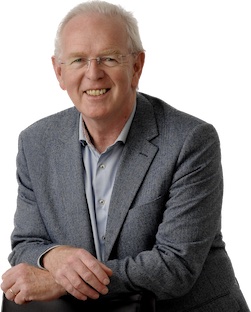As part of EIIS industry profiles series, Paul Browne of Green Crowd has kindly shared his knowledge of EIIS Crowdfunding and Green Crowd's offering.
Tell us a bit about Green Crowd?
Green Crowd commenced trading in 2020 and conducts and manages private placements on behalf of our clients in the EIIS fundraising and private placement markets. We specialise in early-stage equity with a focus on asset-backed investments in renewable energy and sustainable infrastructure projects.
Green Crowd has raised over €3m in EIIS funding since its inception and expects to raise a further €2m in the 2023 EIIS round.

Please tell us about yourself?
I am the CEO and founder of Green Crowd. I am a Chartered Accountant and have carried out several turnaround and recovery assignments in the hotel sector, online/IT sector and luxury cruise line sector. I have co-developed and managed several investment fund companies in the renewable energy sector. I founded Solarstream in 2018 which installs Solar PV across Ireland and employ a team of 25 staff.
What is the advantage of Crowdfunding for an EIIS investor?
Investors are able to invest in early-stage businesses and claim tax relief on their investments. Green Crowd offer its investments on a private placement basis which means the investor decides where their money is invested so they can diversify their portfolio. There are also no fees to the Green Crowd investors to invest in these companies.
How do you communicate with your investors?
Investment companies are required to provide investors with quarterly updates on their investments and they receive copies of Management Accounts and Financial Statements. There is an area on our Platform which allows investors to ask questions directly to the investment company as well.
Can you give an example of one of your investee companies?
Green Crowd specialise in early-stage equity with a focus on renewable energy and sustainable infrastructure projects. In 2022, we raised c.€500K for Green Tech Distributors which commenced trading in the distribution of solar PV equipment across Ireland. There has been a significant increase in the interest in Solar PV in Ireland and an influx of new installers with a limited number of distributors to service them, this presents an excellent opportunity for Green Tech Distributors to capture a share of this market. They are raising funds again in 2023 to scale the business.
Can you tell us about the due diligence steps you take?
Green Crowd perform extensive due diligence on the investor companies. We review all information presented to us and perform background checks on the Directors and Shareholders and the company itself. All information provided to us is verified with the company’s accountant and/or legal team if necessary.
What advice do you give an EIIS investor?
Our advice is to always seek independent legal and/or financial advice from a suitably qualified professional. Green Crowd do not provide financial advice.
How do you see the current economic backdrop affecting crowdfunding?
In the current economic climate, it is natural that investors may be slow to invest in crowdfunding projects. However, it is during tough economic times that entrepreneurs seek alternative ways to raise funds. With the current surge in interest in the renewable energy sector, we believe that by offering investors a chance to invest in companies in this area offers an opportunity to invest in companies that are shaping the future of energy in Ireland.
What changes would you like to see with EIIS Legislation?
There are a number of changes in the EIIS legislation that Green Crowd would like to see change. The EIIS self-certification process can cause issues down the line for the company. The rules around EIIS need to be simplified and a degree of certainty given to the companies by Revenue prior to fundraising. This would make it more accessible for companies to raise capital in this way.
The EIIS Legislation currently prohibits the offsetting of capital losses, a restriction we think should be reconsidered to align with other investment methods.
The most recent changes in the Finance Bill 2023 restricting that amount of tax relief will make it more difficult to raise much-needed development and growth finance for SMEs.
Thank you to Paul for his time participating in this interview.
